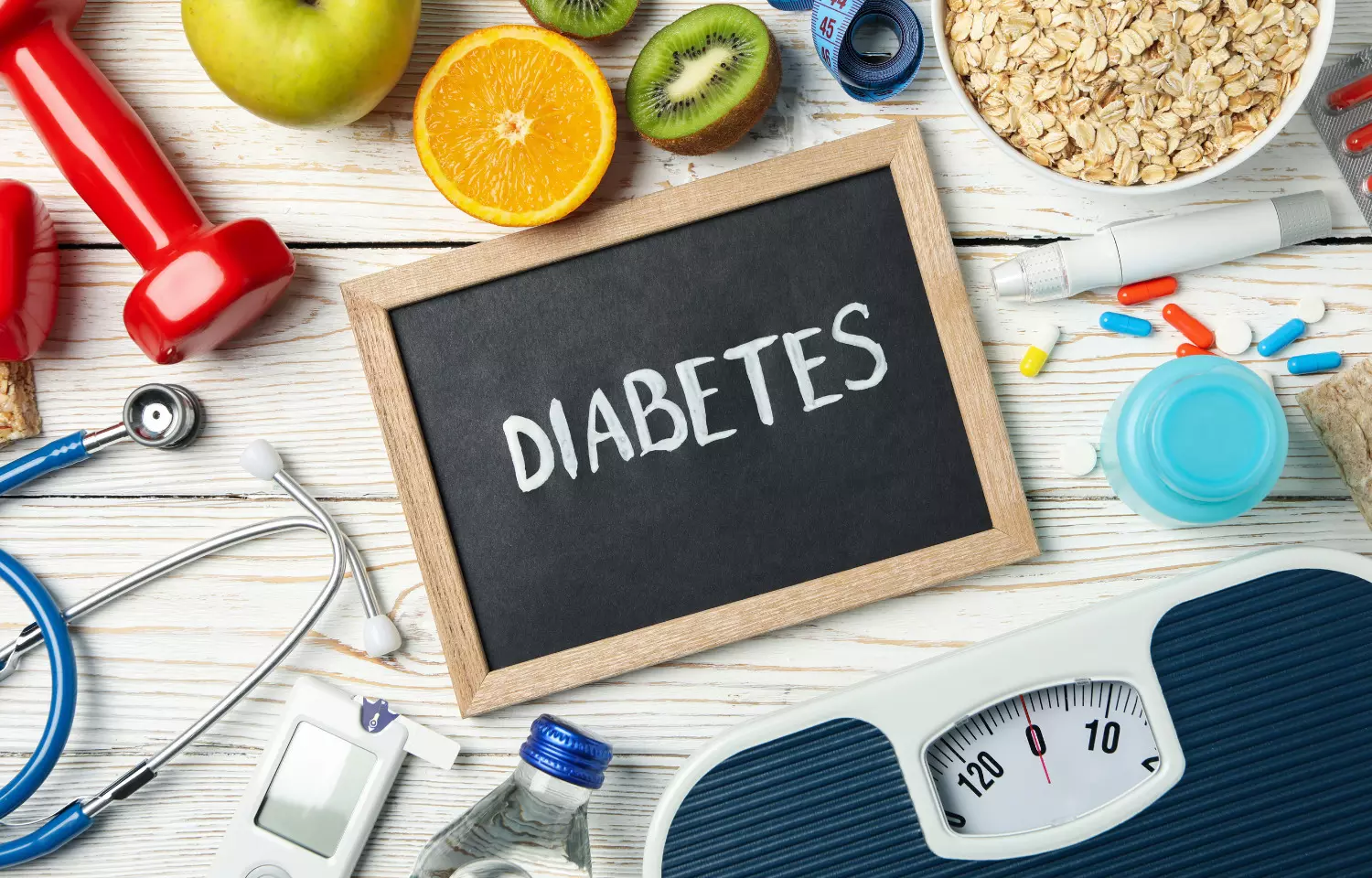- Home
- Medical news & Guidelines
- Anesthesiology
- Cardiology and CTVS
- Critical Care
- Dentistry
- Dermatology
- Diabetes and Endocrinology
- ENT
- Gastroenterology
- Medicine
- Nephrology
- Neurology
- Obstretics-Gynaecology
- Oncology
- Ophthalmology
- Orthopaedics
- Pediatrics-Neonatology
- Psychiatry
- Pulmonology
- Radiology
- Surgery
- Urology
- Laboratory Medicine
- Diet
- Nursing
- Paramedical
- Physiotherapy
- Health news
- Fact Check
- Bone Health Fact Check
- Brain Health Fact Check
- Cancer Related Fact Check
- Child Care Fact Check
- Dental and oral health fact check
- Diabetes and metabolic health fact check
- Diet and Nutrition Fact Check
- Eye and ENT Care Fact Check
- Fitness fact check
- Gut health fact check
- Heart health fact check
- Kidney health fact check
- Medical education fact check
- Men's health fact check
- Respiratory fact check
- Skin and hair care fact check
- Vaccine and Immunization fact check
- Women's health fact check
- AYUSH
- State News
- Andaman and Nicobar Islands
- Andhra Pradesh
- Arunachal Pradesh
- Assam
- Bihar
- Chandigarh
- Chattisgarh
- Dadra and Nagar Haveli
- Daman and Diu
- Delhi
- Goa
- Gujarat
- Haryana
- Himachal Pradesh
- Jammu & Kashmir
- Jharkhand
- Karnataka
- Kerala
- Ladakh
- Lakshadweep
- Madhya Pradesh
- Maharashtra
- Manipur
- Meghalaya
- Mizoram
- Nagaland
- Odisha
- Puducherry
- Punjab
- Rajasthan
- Sikkim
- Tamil Nadu
- Telangana
- Tripura
- Uttar Pradesh
- Uttrakhand
- West Bengal
- Medical Education
- Industry
Periconceptional folic acid lessens risk of preterm birth in epileptic women on antiseizure drugs

Periconceptional folic acid when taken by epileptic women on anti-seizure medication lowered the risk of preterm birth as per a study that was published in the journal 'Neurology.'
Epileptic women undergoing treatment with antiseizure medication (ASM) have an increased risk of pregnancy complications including preterm birth, fetal growth restriction, and preeclampsia. Hence, researchers conducted a study to investigate whether folic acid supplementation is associated with these pregnancy complications in women with epilepsy using ASM. They included Singleton pregnancies in the prospective Norwegian Mother and Child Cohort Study (MoBa) from 1999–2008. Using the MoBa questionnaires and the Norwegian Medical Birth Registry information on maternal epilepsy, ASM, folic acid supplementation, and pregnancy outcomes were obtained. Periconceptional folic acid supplementation was defined as intake between 4 weeks before pregnancy and 12 weeks into pregnancy and the information was retrospectively collected by the recall of the mothers in weeks 17–19. The primary outcomes were preterm birth (gestational age <37 weeks at birth), small for gestational age (SGA), and preeclampsia.
Results:
- The study included 1,00,105 pregnancies. Out of these 99,431 were without maternal epilepsy, 316 with maternal epilepsy and ASM exposure in pregnancy, and 358 with untreated maternal epilepsy.
- Among ASM-treated women with epilepsy, the risk of preterm birth was higher in those who did not use periconceptional folic acid (n = 64) compared with those who did (n = 245, the reference), while the risk of preterm birth among the reference was similar to the risk among women without epilepsy using folic acid periconceptionally.
- ASM-treated women with epilepsy starting folic acid after the first trimester had a higher risk compared with women without epilepsy with similar timing of folic acid, and even higher if not using folic acid.
- Folic acid was not associated with the risk of preterm birth among women with epilepsy without ASM or among women without epilepsy.
- Folic acid was not associated with the risk of preeclampsia or SGA among women with epilepsy.
Thus, the researchers concluded that periconceptional folic acid was associated with a lower risk of preterm birth in epileptic women using ASM and this study supports the recommendation that ASM-treated women with epilepsy of childbearing potential should use folic acid supplementation regularly.
TAKE-HOME MESSAGE
Women with epilepsy, particularly when exposed to antiseizure medications (ASMs), have a high risk of pregnancy complications. The supplementation of folate, an essential ingredient for DNA synthesis, is generally recommended during pregnancy, but more evidence is needed regarding the specific impact of folate supplementation on pregnancy. This study used data from a prospective pregnancy cohort study in Norway to assess the impact of folic acid supplementation on the risks of preterm birth, preeclampsia, or restricted fetal growth, in women receiving and not receiving treatment for epilepsy and ASMs. In the group of women with epilepsy using ASMs, among those using folic acid supplements periconceptionally, 5% of pregnancies resulted in preterm birth, and among those not taking folic acid, 14% of pregnancies resulted in preterm birth. The risk of preterm birth did not differ between women without epilepsy and ASM-treated women who used folic acid periconceptionally. Delaying supplementation until late in pregnancy was associated with a higher risk of preterm birth and the risk was highest in ASM-treated women who did not take folic acid.
These results provide important information regarding the impact of folic acid supplementation. The findings support a recommendation for ASM-treated women with epilepsy to use folic acid supplementation if they have the potential to become pregnant.
To read the full article, click here: https://doi.org/10.1212/WNL.0000000000200669
Alvestad S, Husebye ESN, Christensen J, et al. Folic Acid and Risk of Preterm Birth, Preeclampsia, and Fetal Growth Restriction Among Women With Epilepsy. Neurology. 2022;99(6):e605-e615. doi:10.1212/wnl.0000000000200669
BDS, MDS
Dr.Niharika Harsha B (BDS,MDS) completed her BDS from Govt Dental College, Hyderabad and MDS from Dr.NTR University of health sciences(Now Kaloji Rao University). She has 4 years of private dental practice and worked for 2 years as Consultant Oral Radiologist at a Dental Imaging Centre in Hyderabad. She worked as Research Assistant and scientific writer in the development of Oral Anti cancer screening device with her seniors. She has a deep intriguing wish in writing highly engaging, captivating and informative medical content for a wider audience. She can be contacted at editorial@medicaldialogues.in.
Dr Kamal Kant Kohli-MBBS, DTCD- a chest specialist with more than 30 years of practice and a flair for writing clinical articles, Dr Kamal Kant Kohli joined Medical Dialogues as a Chief Editor of Medical News. Besides writing articles, as an editor, he proofreads and verifies all the medical content published on Medical Dialogues including those coming from journals, studies,medical conferences,guidelines etc. Email: drkohli@medicaldialogues.in. Contact no. 011-43720751




